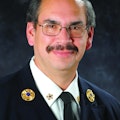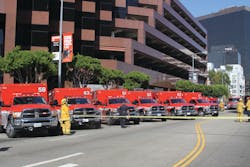If you are a fire chief or an incident commander, no matter where you live or work, one person or multiple people, a natural disaster or an unusual weather-related event can determine whether you or your fire department will be on the national or international news tonight.
Although these events are extraordinary, our units respond to incidents such as airplane crashes, wildfires, hazardous materials incidents, train wrecks, chemical plant explosions and shootings at schools, shopping malls, airports, multiple dwellings, office buildings, factories and private dwellings. How many times each day are our companies dispatched to shootings and assaults and millions of EMS calls? Chief Alan Brunacini once told me that traffic collisions on the streets and highways are a growth industry.
When members of the approximately 36,000 U.S. fire departments describe themselves, it is usually understood that there are about 36,000 ways of doing things. Procedures differ from mile to mile, neighboring fire department to neighboring fire department, city to city, county to state, East versus West and North versus South. And when something bad happens, people sue.
The legal system and those who think they have not received adequate or the proper service or who have lost something of value don’t care what credentials you have; they are only interested in what credentials you DON’T have. This means you must focus on the preparation of you, your officers, your members and your department BEFORE the call.
Proper pre-planning, driver training, proper personal protective equipment (PPE), standard operating procedures (SOPs), standard operating guidelines (SOGs), dispatch protocols and response times are some of the items that may have been called into question after recent events.
Many of the above items may be called into question particularly when your actions are compared to national standards. Most of these items are not new and the same questions have been asked in the past. What have you and your department done to prepare for some of the same potential factors affecting your department? Many of these recent major fire and emergency events might not have occurred near you, but they all have possible impact. Maybe we should think about operating smarter. There are many ways we operate. It is a real tall order to operate the same, but we should all be aware of the consequences.
For comments and suggestions, please contact us at [email protected].
1
2014 firefighter line-of-duty deaths at press time
111
2013 civilian fire fatalities at press time
About the Author

Harvey Eisner
Editor Emeritus
HARVEY EISNER was named Editor Emeritus of Firehouse® after serving 15 years as Firehouse's Editor-in-Chief. He joined the Tenafly, NJ, Fire Department in 1975 and served as chief of department for 12 years. He was a firefighter in the Stillwater, OK, Fire Department for three years while attending Oklahoma State University. Eisner was an honorary assistant chief of the FDNY and program director for the Firehouse Expo, Firehouse World and Firehouse Central conferences. He covered many major fires and disasters and interviewed numerous fire service leaders for Firehouse®
